At-Will Employment
In Delaware, the general rule is that employment is terminable at-will by either party in the absence of an employment contract specifying a definite period. Employees may be terminated for any reason not expressly prohibited by federal, state, or local law.
Courts may recognize claims for breach of implied contract based on provisions in an employee handbook, oral statements, or a course of conduct that creates a reasonable expectation of continued employment.
For comprehensive training on maintaining at-will employment, visit EmployerESource to explore our training webinars. These resources provide valuable insights for business owners and managers looking to stay informed and compliant.
If you have questions about at-will employment or need guidance on preserving this relationship, please contact EmployerESource. We’re here to support you and ensure your policies align with best practices.
Ban the Box
Delaware's "Ban the Box" law prohibits employers from inquiring about an applicant's criminal history or conducting a background check until after a conditional job offer has been made.
Employers may only revoke a conditional offer if certain requirements are met, such as:
The candidate's criminal history has a direct relationship to the position.
The candidate would pose an unreasonable risk to public safety.
Before revoking a conditional offer, employers must provide the candidate with a copy of the background check used in the decision and allow a specified number of business days for the candidate to respond.
Contact EmployerESource to customize your employee offer letter to align with legal requirements and to obtain a tailored form letter for handling these situations.
We’re here to assist you in ensuring compliance and protecting your business.
Break/Meal Period
Delaware law requires that non-exempt employees be provided with uninterrupted, unpaid meal breaks based on the number of hours they work. The law specifies the timing and duration of these breaks.
Understanding the specifics is crucial. Our expertly crafted Employee Handbook outlines these requirements in detail, helping you protect your business and support your employees. Contact EmployerESource today to ensure your handbook meets all legal standards!
Employee Training
Delaware employers have several obligations to train employees on specific issues. One primary requirement, applicable to nearly all employers, is providing sexual harassment prevention training. This law outlines the required frequency of training, specific supervisor training, and the necessary training content.
We recommend reviewing your policy to ensure compliance with these regulations.
If you have any questions about this law, please contact EmployerESource. We’re here to assist you and ensure your practices remain compliant.
Employees Records Access
Employees have the right to inspect their personnel files, which include employment history, salary details, performance evaluations, and other relevant records used for decisions on promotions, compensation, or disciplinary actions. Employers must provide reasonable access while ensuring file integrity, limiting inspection to once per calendar year unless there is reasonable cause. Employees may also submit a written statement to dispute or clarify file contents.
A well-defined personnel file policy is essential to ensure compliance, protect employer records, and establish clear guidelines for employee access. EmployerESource offers a comprehensive Employee Handbook that includes this policy and more, ensuring your company adheres to legal standards while maintaining operational efficiency.
Get your Employee Handbook today and safeguard your business with clear, compliant policies!
Final Wages
When an employee quits, is terminated, or laid off, their earned wages must be paid on the next scheduled payday through the usual pay channels or by mail upon request. Employers who fail to pay wages without reasonable grounds may face penalties, including liquidated damages. Exceptions apply in cases of uncontrollable events like natural disasters or power failures.
Avoid legal risks and ensure compliance with wage payment laws by implementing clear payroll policies. EmployerESource provides a comprehensive Employee Handbook that includes this and other essential policies to protect your business and employees.
Get your Employee Handbook today and stay compliant with payroll regulations!
Jury Duty Leave
Delaware employers are required to grant employees time off for jury duty service. While employers are not obligated to pay employees for this time off, they must ensure that employees are not penalized or disciplined for legally serving.
Avoid legal risks and ensure compliance with wage payment laws by implementing clear payroll policies. EmployerESource provides a comprehensive Employee Handbook that includes this and other essential policies to protect your business and employees.
Get your Employee Handbook today and stay compliant with payroll regulations!
Minimum Wage
As of 2025 Delaware’s minimum wage is $10.50 per hour.
Contact EmployerESource with any questions about this law.
Overtime
Delaware labor laws do not address overtime pay, so federal overtime laws under the Fair Labor Standards Act (FLSA) apply. Employees in Delaware are entitled to 1.5 times their regular wage for hours worked beyond 40 in a workweek.
Avoid legal risks and ensure compliance with wage payment laws by implementing clear payroll policies. EmployerESource provides a comprehensive Employee Handbook that includes this and other essential policies to protect your business and employees.
Get your Employee Handbook today and stay compliant with payroll regulations!
Payroll Deductions
Navigating wage deductions can be complex, and failing to comply with Wage Payment and Collection Act can result in legal risks for your business. Employers cannot deduct cash shortages, damaged property costs, or unreturned company property from an employee’s paycheck, even with a signed agreement. Additionally, payroll deductions for cash advances or goods must follow strict repayment guidelines.
Avoid costly legal mistakes and ensure compliance with a professionally crafted Employee Handbook from EmployerESource. Our handbooks include up-to-date policies tailored to protect both your business and employees. Contact us today to secure yours!
Salary History
Navigating wage deductions can be complex, and failing to comply with Delaware law prohibits an employer from screening job applicants based on their salary history and from seeking that information from the applicant or a current or former employer. Exceptions may be made if the applicant voluntarily discloses the information or has accepted a job offer. The law also makes it an unlawful employment practice to require that an applicant’s prior compensation satisfy minimum or maximum criteria.
For questions about this law or to obtain a Delaware-specific employment application, contact EmployerESource today.
Vacation
Employers in Delaware are not legally required to provide vacation benefits to employees. However, if a company offers vacation, personal time off (PTO), or holiday leave, it must adhere to the policies it establishes.
This makes it essential for businesses to adopt well-crafted, clear, and compliant vacation policies.
EmployerESource specializes in developing customized vacation and leave policies tailored to your business needs. Let us help you create policies that align with your goals while ensuring compliance and clarity for your employees.
Contact us today to get started!
Voting Leave
Delaware employers must allow employees in non-critical positions to use accrued vacation time to serve as election officials on Election Day.
Your policies should also include clear guidelines regarding jury duty service to remain compliant with legal requirements.
At EmployerESource, we specialize in helping businesses like yours align workplace policies with legal standards, ensuring compliance and safeguarding your company.
Contact us today to learn how we can support your HR needs with expert guidance and tailored solutions.
Wages in Dispute
In the event of a wage dispute, Delaware employers are required to pay any wages or portions of wages that they acknowledge as due. Importantly, this payment does not release any remaining claims, and employers may still pursue legal action if necessary.
For assistance with wage disputes and ensuring compliance, contact EmployerESource today. Our team is here to help you navigate these complex issues with confidence and protect your business.

